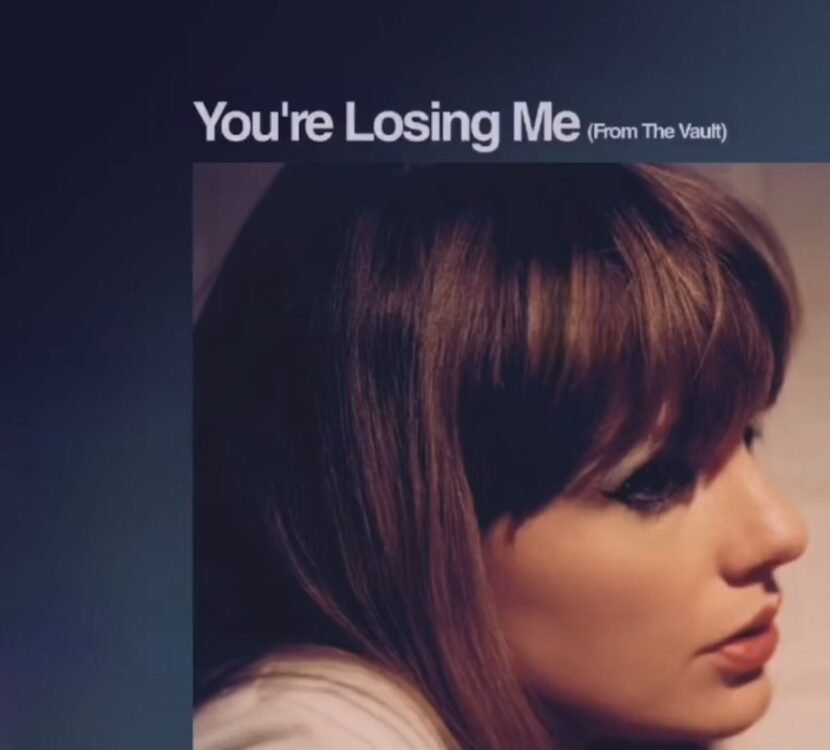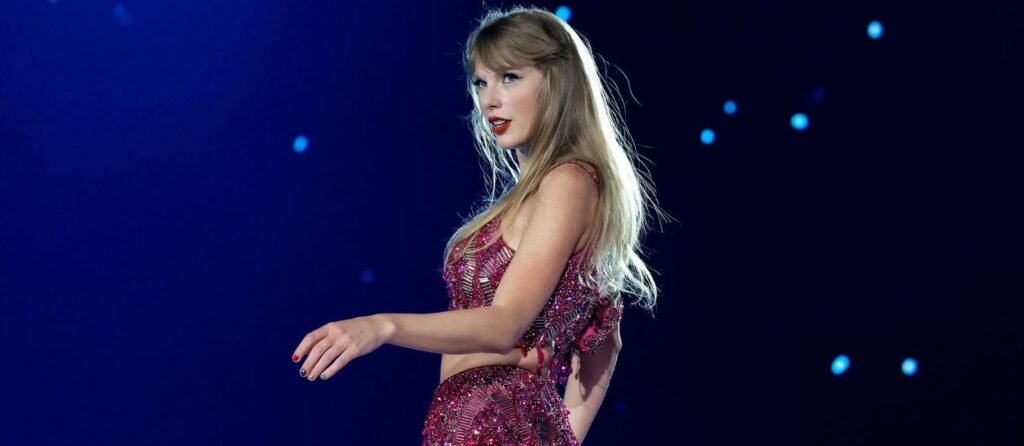Taylor Swift, the iconic American singer-songwriter, has once again captured the hearts of millions with her song You’re Losing Me. This track, subtitled From the Vault, is a testament to Swift’s unparalleled ability to weave intricate stories through her lyrics.
Let’s dive deep into this mesmerising ballad and uncover the layers of emotion and storytelling that make it so captivating.
Background and Release
You’re Losing Me is a song from Swift’s 2022 studio album Midnights: The Late Night Edition, released on May 26, 2023. This track, written by Swift in collaboration with Jack Antonoff and Aaron Dessner, is a mid-tempo ballad that resonates with the rhythm of a heartbeat.
The lyrics poignantly describe the impending end of a long-term romantic relationship, marked by a growing chasm of misunderstanding between the partners. This song was met with widespread acclaim from music critics and became a focal point of tabloid news coverage.
Swift’s Midnights album was initially released on October 21, 2022, and was met with both critical and commercial success. The album had multiple editions, and during her sixth headlining concert tour, the Eras Tour in 2023, Swift announced two more editions. One of these was the Late Night Edition, which featured You’re Losing Me as a bonus track. This edition was exclusively available for purchase at the Eras Tour in East Rutherford, New Jersey, from May 26–28, 2023. The track’s release was highly anticipated, with fans eagerly queuing up at the stadium a day before the merchandise store’s opening to get their hands on the CD.

Composition and Lyrics
The song is an “airy” ballad with twinkling synthesizers, driven by sparse but steady beats. The lyrics are autobiographical, painting a vivid picture of the tragic end of a relationship. The overarching theme suggests that while the narrator has given her all to the relationship, she feels that her efforts are not reciprocated. Throughout the song, Swift draws parallels between physical injuries and the emotional pain of heartbreak.
The lyrics have sparked speculation among journalists, suggesting that they might be about the end of Swift’s six-year romantic relationship with English actor Joe Alwyn. This speculation was fueled by references in the song’s bridge, hinting at a potential marriage and drawing parallels with other tracks from Swift’s discography. Such as Lavender Haze (2022), the opening track of Midnights, where the lyrics talked about avoiding talking about marriage in order to enjoy the honeymoon phase.
Here are some of the notable lyrics and their meanings:
Verse 1: “You say, “I don’t understand,” and I say, “I know you don’t” / We thought a cure would come through in time, now, I fear it won’t / Remember lookin’ at this room, we loved it ’cause of the light / Now, I just sit in the dark and wonder if it’s time”
The narrator expresses her frustration and disappointment with her partner, who doesn’t understand her feelings or needs. They hoped that their relationship would heal over time, but now she fears that it won’t. She recalls how they used to love their room because of its brightness, but now she just sits in the dark and wonders if it’s time to end their relationship.
Pre-Chorus: “Do I throw out everything we built or keep it? / I’m getting tired even for a phoenix / Always risin’ from the ashes / Mendin’ all her gashes / You might just have dealt the final blow”
The narrator faces a dilemma: whether to discard or preserve their relationship. She compares herself to a phoenix, a mythical bird that rises from its own ashes after death. She implies that she has always been resilient and optimistic in their relationship, even when things got bad. However, she is getting tired of constantly rebuilding and repairing their relationship. She suggests that her partner might have done something that hurt her so much that she can’t recover from it.
Chorus: “Stop, you’re losin’ me / Stop, you’re losin’ me / Stop, you’re losin’ me / I can’t find a pulse / My heart won’t start anymore for you / ‘Cause you’re losin’ me”
The chorus repeats the word “stop,” which is often used in medical dramas when someone is trying to revive a dying patient. The narrator compares her heart to a patient who has no pulse and can’t be resuscitated. She tells her partner to stop hurting her or neglecting her, because he is losing her love and her life. She can’t feel anything for him anymore, because he is losing her.
Verse 2: “Every mornin’, I glared at you with storms in my eyes / How can you say that you love someone you can’t tell is dyin’? / I sent you signals and bit my nails down to the quick / My face was gray, but you wouldn’t admit that we were sick”
The narrator describes how she felt angry and sad every morning when she looked at her partner. She questions how he can claim to love her when he can’t see how much she is suffering. She tried to communicate with him and show him her distress, but he ignored or denied the signs. She felt pale and lifeless, but he wouldn’t acknowledge that their relationship was unhealthy.
Bridge: “How long could we be a sad song / ‘Til we were too far gone to bring back to life? / I gave you all my best me’s, my endless empathy / And all I did was bleed as I tried to be the bravest soldier / Fighting in only your army, frontlines, don’t you ignore me / I’m the best thing at this party (You’re losin’ me) / And I wouldn’t marry me either / A pathological people pleaser / Who only wanted you to see her / And I’m fadin’, thinkin’ / “Do something, babe, say something” (Say something) / “Lose something, babe, risk something” (You’re losin’ me) / “Choose something, babe, I got nothing” (I got nothing) / “To believe, unless you’re choosin’ me””
The bridge reveals that the narrator and her partner had plans to get married and spend their lives together. They had a strong and lasting bond, and they were supposed to be a happy couple. But now, they have become a sad song, a metaphor for a depressing and hopeless situation. She wonders how long they could continue like this before they were too far gone to revive their relationship.
She claims that she gave him all her best versions of herself, and all her compassion and understanding. But all she got in return was pain and suffering. She compares herself to a brave soldier who fought for him and his causes, but he ignored or neglected her. She says that she was the best thing at this party, meaning that she was the best partner he could have. But she also admits that she wouldn’t marry herself either, because she was a pathological people pleaser who only wanted him to notice and appreciate her, this is considered a reference to Anti-Hero (2022), a song that discussed Swift’s insecurities.
She feels that she is fading away, and she begs him to do something, say something, lose something, risk something, or choose something to save their relationship. She says that she has nothing to believe in, unless he chooses her.
Critical Reception
You’re Losing Me was met with widespread acclaim from music critics, who praised Swift’s songwriting skills and emotional delivery. Some of the reviews are:
- Steffanee Wang of Nylon lauded the song for its portrayal of heartbreak without resorting to dramatic revelations or accusations. She even went on to suggest that “You’re Losing Me” could be Swift’s “most devastating” song, surpassing the iconic “All Too Well” from 2012.
- Stephanie Topacio Long from Bustle described the song as a portrayal of a relationship transitioning from being critically wounded to fatally damaged.
- Rob Sheffield from Rolling Stone called the song a “masterpiece of understated heartache” and compared it to Swift’s earlier songs “Last Kiss” and “Dear John” from 2010.
- Jon Caramanica from The New York Times praised the song for its “subtle but powerful” production and lyrics and noted that it showcased Swift’s maturity and growth as an artist.
Conclusion
You’re Losing Me is a testament to Taylor Swift’s unparalleled songwriting prowess. It’s a song that resonates with many, capturing the raw emotions of heartbreak and the complexities of relationships. As with many of Swift’s songs, it leaves listeners with a mix of emotions and a deeper appreciation for her artistry.


